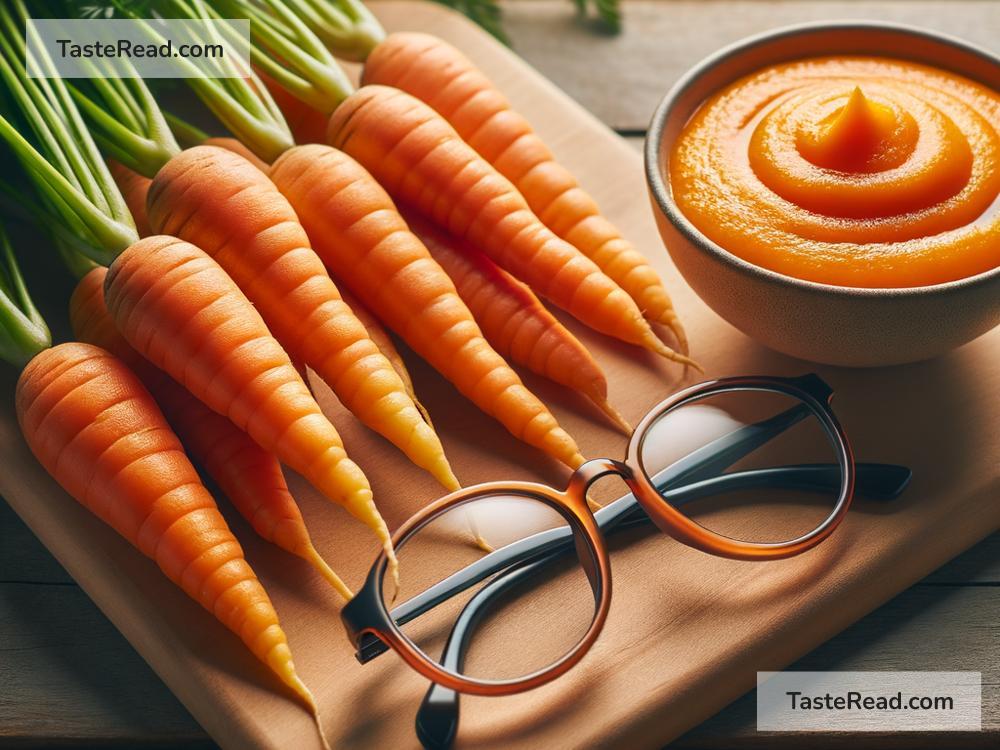The Surprising Role of Carrots in Improving Eyesight
When we think about healthy eating, most of us think about fruits and vegetables. Among these, carrots often stand out for their bright orange color and sweet taste. But did you know that carrots have long been linked to improving eyesight? For years, people have been told to “eat your carrots; they’ll help you see better.” But how much of this is true? Do carrots really work miracles for our eyes, or is it just an old myth? Let’s explore the surprising role of carrots in keeping your vision sharp.
Where Does the “Carrots for Eyesight” Idea Come From?
The connection between carrots and eyesight goes back many decades, especially during World War II. British propaganda claimed that night fighter pilots were eating plenty of carrots, which helped them see in the dark and shoot down enemy planes. This story was widely circulated, and people began to believe that carrots could give them superhuman eyesight. While the claim was exaggerated to hide the use of secret radar technology, it actually planted a seed of truth. Carrots do play a role in eye health, although not in the magical way the wartime stories suggested.
What’s Inside a Carrot That Helps Your Eyes?
To understand how carrots help your vision, let’s look at what’s inside them. Carrots are rich in a nutrient called beta-carotene, which is responsible for their orange color. Beta-carotene is a type of antioxidant that the body converts into Vitamin A. Vitamin A is essential for many functions in the body, including maintaining good eyesight.
Here’s how Vitamin A benefits your eyes:
-
Night Vision: Vitamin A helps your eyes adjust to low-light conditions. It aids the production of a pigment called rhodopsin, which is needed by the retina (the inner part of your eye) to see in dim light. Without enough Vitamin A, you may struggle to see well in the dark, a condition known as night blindness.
-
Healthy Cornea: The cornea is the clear, outer layer of your eye. Vitamin A ensures that it stays smooth and clear, avoiding potential damage or discomfort.
-
Preventing Vision Loss: Lack of Vitamin A can lead to serious eye diseases, including xerophthalmia, which can cause permanent vision loss. Eating carrots (and other Vitamin A-rich foods) can prevent these problems.
Can Carrots Really Fix Poor Eyesight?
While carrots are undoubtedly good for your eye health, they cannot fix every vision problem. Issues like nearsightedness, farsightedness, or astigmatism are often caused by the shape of the eye or genetics, and eating carrots won’t directly cure them. Carrots don’t work like magic glasses—they can’t completely restore eyesight that has already been damaged or lost.
However, eating carrots regularly can play an important role in maintaining overall eye health. By providing your body with enough Vitamin A, carrots can prevent future vision problems, making them worth adding to your diet.
Are Carrots the Only Eye-Friendly Food?
Carrots get a lot of attention for their contribution to eyesight, but they’re not the only food that benefits your eyes. Many fruits and vegetables contain nutrients that support eye health. For example:
- Sweet potatoes and spinach: These are also rich in beta-carotene and Vitamin A.
- Citrus fruits: Oranges and lemons contain Vitamin C, another antioxidant that protects your eyes from damage caused by aging and environmental stress.
- Eggs, fish, and nuts: These contain zinc and omega-3 fatty acids, which reduce the risk of age-related eye conditions like macular degeneration.
- Leafy greens like kale: They’re full of lutein and zeaxanthin, two nutrients that act as natural sunglasses, protecting your eyes from harmful UV rays.
Adding a mix of these foods to your diet can give your eyes the strong, long-lasting protection they need.
How to Add Carrots to Your Diet
Carrots are versatile, making them easy to include in meals and snacks. Here are some simple ways to enjoy them:
- Eat them raw as a crunchy snack.
- Blend them into a smoothie with fruits.
- Grate them into salads.
- Roast them with some olive oil and spices for a tasty side dish.
- Add them to soups, stir-fries, or baked goods.
No matter how you eat them, carrots are a delicious way to support your health.
The Final Word: Carrots Are Great, but Not Magical
Carrots are a powerhouse of nutrients, and Vitamin A from carrots can truly help keep your eyes healthy. However, they are not a cure-all for vision problems. Eating carrots won’t give you “super vision” or instantly correct poor eyesight, but they will play a solid role in preventing future eye issues. Combine carrots with other eye-friendly foods and make regular visits to your eye doctor to keep your vision in tip-top shape.
So, the next time someone reminds you to eat your carrots “for your eyes,” you can confidently say, “Yes, they’re worth it!”


